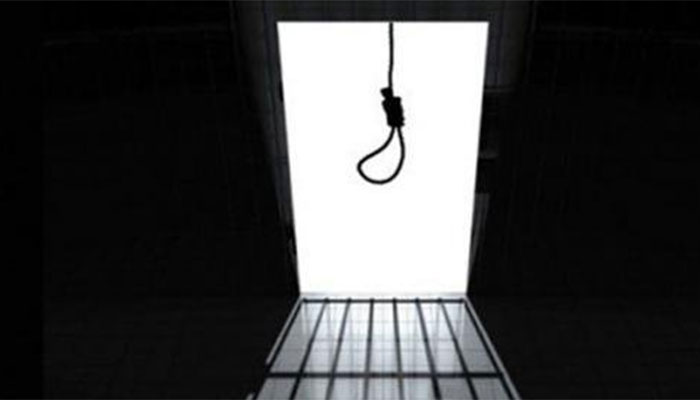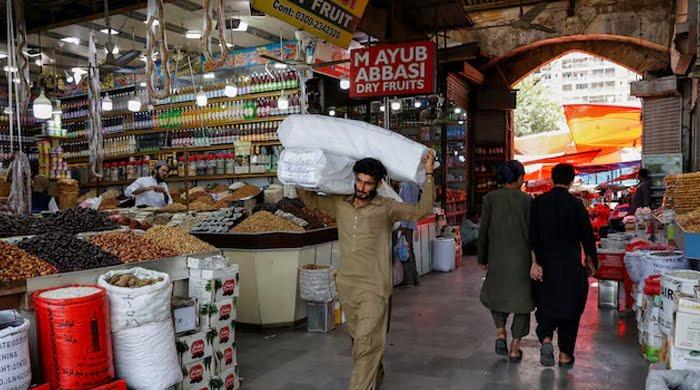A lethal lottery
It is time the government reconsider Pakistan’s support for the death penalty
December 27, 2018

Last week, a record number of 120 out of 193 United Nations member states voted in favour of a UN General Assembly resolution calling for a moratorium on the death penalty, with a view of abolishing capital punishment. The resolution also expressed “deep concern” over the use of the death penalty and urged those countries that continue to retain capital punishment to take action to ensure that death sentences are not a result of discriminatory or arbitrary laws or practices.
In a dramatic turn of events, Pakistan was initially shown to vote in favour of the resolution (a change from past practice), but its vote was later “corrected” following the government’s claims that the UN had “inaccurately recorded” its vote. Now, Pakistan is one of only 36 UN member states to have voted against the resolution.
Restoration of executions in Pakistan in 2014 after a six-year moratorium is perhaps one of the most significant reversals of progress in human rights in our recent history. As the rest of the world is rapidly moving towards abolition of the death penalty, as shown by last week’s UN resolution, Pakistan is fast surpassing nearly all other countries and is now one of the highest executioners in the world.
The government brought back executions for people convicted of terrorism-related offences in December 2014 as part of the National Action Plan against terrorism, and lifted the moratorium for all cases in March 2015. Contrary to popular perception, a large majority of the executions that have been carried out since December 2014 relate to ordinary crime - specifically murder - and not “terrorism”.
Over these past two years, multiple problems relating to the implementation of the death penalty have been identified. These include lack of safeguards against executing people who were minors (under the age of eighteen), at the time of the offence; inadequate protection against executing people suffering from mental illnesses; and lingering concerns about executing people convicted wrongfully.
One important aspect of the implementation of capital punishment that has thus far been largely overlooked in Pakistan is its inherent arbitrariness, which is just another reason why retaining the death penalty is an ongoing violation of not only to the right to life, but also to the security of the person, equal protection of the law, and protection from cruel, inhuman or degrading punishment.
The argument is simple: the death penalty is an inherently arbitrary punishment because it cannot be applied fairly, consistently and without discrimination. As explained by the late Justice Chaskalson, former President of the South African Constitutional Court and former President of the ICJ in S v. Makwanyane: “At every stage of the (death penalty) process there is an element of chance. The outcome is dependent on factors such as the way the cases are investigated by the police, the way the cases are presented by the prosecutor, how effectively the accused is defended, the personality and particular attitude to capital punishment of the trial judge and, if the matter goes on appeal, the particular judges who are selected to hear the case.”
In Pakistan, most death sentences are given and carried out under section 302(b) of the Pakistan Penal Code, which relates to murder. The provision provides for death or life imprisonment as the two possible sentences upon a finding of guilt.
The Court’s jurisprudence on whether and on what basis to give the death penalty as opposed to life imprisonment has been inconsistent and often contradictory. For example, some Supreme Court judgments have held that death is the usual punishment for murder and judges have to individually justify giving the lesser sentence. Others, however, have emphasized the principle of “justice with mercy”, and have stated that courts must give reasons for opting for the death penalty.
What is considered a mitigating circumstance to make a defendant deserving of life imprisonment instead of death also varies greatly among judges. In some cases, provocation has been considered a mitigating factor; in others, it has been considered an accentuating factor.
Similarly, at times the Supreme Court has held that life imprisonment is the appropriate sentence where prosecution fails to establish the “motive” behind the murder, while in others, it has held failure to establish motive is not itself a sufficient ground to give the lesser sentence of lie imprisonment.
Other jurisdictions have grappled with similar issues. In 1980, the Indian Supreme Court restricted the death penalty to the “rarest of rare cases” to reduce the arbitrariness and inconsistency in when judges opt for the death penalty. However, courts have since then admitted that this “test” has been unsuccessful, and that despite the “rarest of rare” guideline, the application of the death penalty is still based on the “personal predilection of the judges constituting the Bench.”
Courts in the United States have also for many decades tried unsuccessfully to craft rules to reduce arbitrariness in the death penalty. The impossibility of this task led US Supreme Court Justice Harry Blackmun to famously declare: “I no longer shall tinker with the machinery of death”, in expressing his view that the death penalty was inherently unconstitutional.
The Indian and US examples are in line with experiences from around the world have shown that no attempts to cure the system of death from its arbitrariness are likely to be successful. This is why the South African Constitutional Court, for example, declared the death penalty unconstitutional in all cases because of the arbitrariness and inequality inherent in the punishment in 1995.
Multiple studies carried out world over show that arbitrariness in the application of the death penalty manifests itself as discrimination against people from vulnerable segments of society. In India, for example, a recent National Law University study found the death penalty is disproportionately given to Muslims and people from “backward castes”. Out of all cases where death sentences were given by courts in terrorism-related cases, 93.5 per cent of convicts were either Dalit or from religious minority communities.
Studies from the United States show similar bias in sentencing, with African Americans at greater risk of being given death sentences than white people, especially if the victim is white.
Arbitrariness in the application of the death penalty has effectively resulted in a “death lottery”. While in other criminal cases arbitrariness in sentencing may result in differences in duration of sentence, in death penalty cases, how and why judges use their discretion on sentencing is, literally, a matter of life and death.
It is time the government reconsider Pakistan’s support for the death penalty. The inherent arbitrariness in the application of the death penalty is another reason to do away with capital punishment on top of many of others – the inherent cruelty to the executed person and his or her family and the denial of the right to life, not to mention the lack of any deterrent effect and the always present possibility of wrongful conviction.
Omer is a legal adviser for the International Commission of Jurists. She tweets @reema_omer











